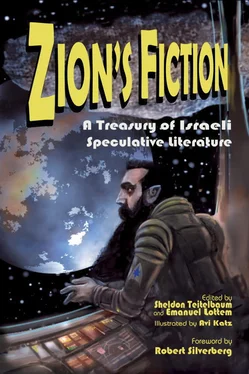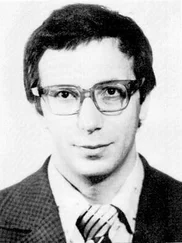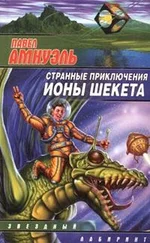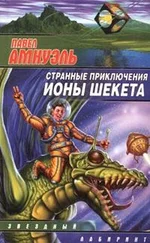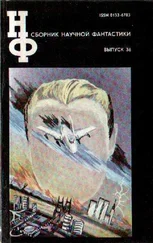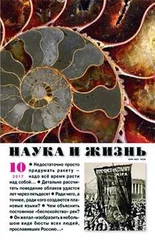One of the tasks undertaken by Israeli speculative literature has been to expose both these dangerously juxtaposed motivations—an atavistic paganism and, perhaps to a lesser extent, religious and secular messianism and romanticism—that led to the Holocaust. Given the country’s utopian origins and Hebrew literature’s unstinting examination of the Zionist enterprise and its fallouts, the main burden for assuaging these anxieties has defaulted to the dystopian novel. As Rovner declaims, “There is nothing new in Jewish literature about predicting the end as a means of forestalling it.” [35] Adam Rovner, “Forcing the End: Apocalyptic Israeli Fiction, 1971–2009,” in Narratives of Dissent: War in Contemporary Israeli Arts and Culture [e-book], edited by Rachel S. Harris and Ronen Omer-Sherman (Detroit: Wayne State University Press, 2012), 209. It is very interesting to note that a similar trend can be discerned now in the Arab world, where “a new wave of dystopian and surrealist fiction [emerges] from Middle Eastern writers who are grappling with the chaotic aftermath and stinging disappointments of the Arab Spring. Five years after the popular uprisings in Egypt, Tunisia, Libya and elsewhere, a bleak, apocalyptic strain of post-revolutionary literature has taken root in the region. Some writers are using science fiction and fantasy tropes to describe grim current political realities…. ‘There’s a shift away from realism, which has dominated Arabic literature,’ said the Kuwait-born novelist Saleem Haddad…. ‘What’s coming to the surface now is darker and a bit deeper.’” (“Middle Eastern Writers Find Refuge in the Dystopian Novel,” New York Times , Books Section, May 29, 2016.) A notable example is Iraqi writer Ahmed Saadawi’s Frankenstein in Baghdad: A Novel (Arabic, al Kamel, 2013; English translation, Penguin Books, 2018).
Just read the Book of Jonah.
Dystopian literature serves as the main exception to the rule that most Israelis disdain the fantastique . It may not have proved as wildly popular in Israel as in the contemporary West, where adults and youngsters alike thrill to the hyperbolic drama in novels and films of cataclysmic Hunger Games/Mad Maxian continuums. But as Rovner observes in his seminal study of Israeli end-time literature, “nearly 40 years’ worth of apocalyptic Hebrew fiction has in fact been translated into English worldwide.” Examples, several of which we address below, include Amos Oz’s novella Late Love (1975), Orly Castel Bloom’s Human Parts (2004) and Dolly City (2010), and Ari Folman’s graphic novel adaptation of his 2008 Academy Award–nominated film Waltz with Bashir . (Folman would go on to film a combined live-action/animated version of the late Polish-Jewish writer Stanislaw Lem’s satirical SF novel The Futurological Congress (1971), released in 2013 as The Congress .)
This would seem to fly in the face of the trend among English-speaking Jews (identified by Alan Mintz) to disengage from Israeli literature that does not reflect their heroic idealization of Israeli society. “I would argue,” contends Rovner, “that the central reason these literary works were selected for translation [into English] is precisely because they acknowledge that Israeli reality falls short of the Zionist ideals of cultural rebirth and national security. To clarify further: what explains the existence of these works in translation is that readers in the Diaspora seek to reinforce the mythology of Israel’s heroism and military prowess, while at the same time they seek to retain a martyrology of Jewish victimization.” [36] Rovner, “Forcing the End,” 206, 209.
Misgivings over past military actions going as far back as Israel’s War of Independence, incessant terrorism, the overwhelming shadow of the Holocaust looming over Israeli imagination—and that cast by a fortress hillock overlooking the crossroads linking Europe, Asia, and Africa in the heart of Israel—have also helped bring apocalyptic tropes to the fore. Trapped between an unsustainable longing for the halcyon days of what Israeli singer Arik Einstein nostalgically called “Good Old Eretz Israel” and the imminent expectation of cataclysm, a significant portion of Israeli literature, Rovner says (referencing modern Hebrew literary scholar Arnold Band), is impelled by a “nostalgia for nightmare.” [37] Ibid., 99, 206; Arik Einstein, Eretz Yisrael haYeshana vehaTova , Phonodor album 13038, 1973.
Though wary of engaging in bouts of unfettered fancy, Israeli writers were certainly well aware that Orwell, Huxley, and Burgess had crafted their respective literary nightmares while incurring the wrath of the writerly classes mostly because of their political underpinnings, not just on the basis of genre. Doubtless they were protected both by their literary reputations and their seriousness of intent in issuing cautionary storm warnings.
It didn’t hurt Israeli dystopianism that one of the first Hebrew books to dabble with some of its tropes was written by one of Israel’s most respected authors. In 1971, Amos Oz published a novella, Ahavah Meuheret ( Late Love ). [38] Amos Oz, Late Love , in Unto Death , translated by Nicholas de Lange (New York: Harcourt Brace Jovanovich, 1975).
More psychological than classically prescriptive or cautionary, Late Love placed modern dystopian imagery and descriptors squarely on the map of contemporary Hebrew literature. Oz thereby reset the standard Zionist tableau, imbuing it with tropes borrowed and deployed, it sometimes seems, from dystopian and pulp science fiction. However distasteful to then-current Israeli literary sensibilities (and probably to Oz’s own stated intent), neither this new vocabulary nor the novella itself could be ignored.
If Israeli dystopias eventually gained a measure of local acceptance, as Gail Hareven observes, it is because they had “a point, that [they had] some sort of connection to ‘the burning reality of our life,’ that [they examined] some fractured symbol or in short, as Gogol put it, ‘that it benefit the country.’” [39] Hareven, “What Is Unimaginable?” 30.
Indeed, even detractors of 1984, Brave New World , and A Clockwork Orange clearly understood that these books did not merely offer fanciful jaunts into the future but were in fact very much about the imminent realities of the day.
This did not assuage all literary concerns. One of the editors of this book (S. T.) interviewed author Amos Kenan in 1984 about his novella The Road to Ein Harod , a near-future political thriller. Kenan bridled at the presumption that this book, though awash with SF/F tropes, qualified in any way as science fiction. “Look outside,” he barked. “This is documentary journalism.”
It comes as no surprise that two of the best received and most enduring examples of Israeli dystopias—Kenan’s Ein Harod and Binyamin Tammuz’s Pundako shel Yirmiyahu (Jeremiah’s inn)—should have been published in 1984. That year’s advent, after all, provided cause for worldwide reflection and stocktaking. Israel, moreover, remained mired in the morass of its ill-conceived invasion of Lebanon in 1982, which was to defy extraction or hoped-for results for years to come. Its official title, Operation Peace for the Galilee, was as brazen an example of Newspeak as anything Orwell ever devised.
The First Lebanon War profoundly embittered Israelis and Jews in the Diaspora, many of whom recognized it as an adventurist folly that had little to do with its stated aims. Misgivings over then Defense Minister Ariel Sharon’s scheme to reconfigure the entire Middle East, outrage over Israel’s inadvertent culpability in the Sabra and Shatila massacre, the perennial sense of helplessness and vulnerability pervading Israeli society, the emergence of the first suicide bombers, the intimations of a tottering power structure culminating in the never-officially-explained abdication of Prime Minister Menachem Begin—all these found voice in dystopian visions.
Читать дальше
